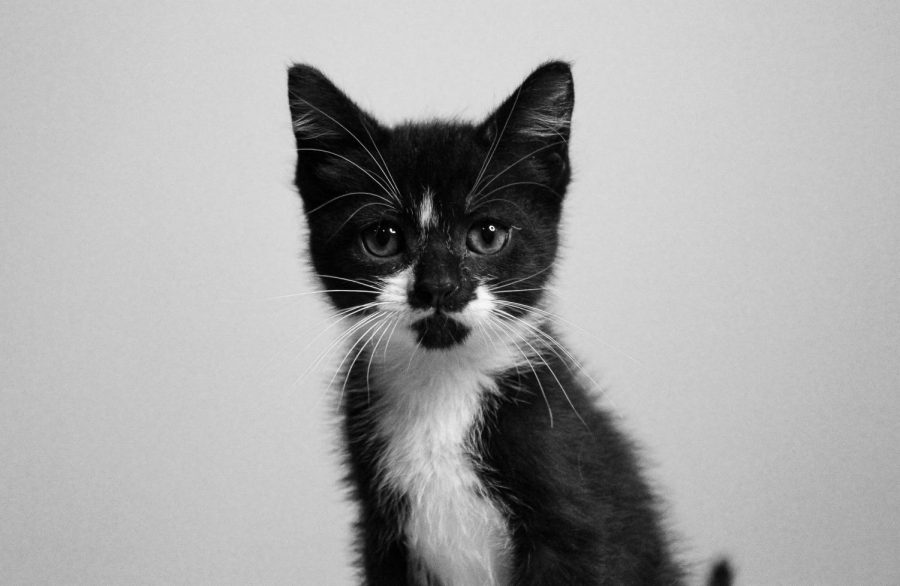Fostering or Owning?
Is it better to foster a kitten or own a kitten? In this article you might be able to find your answer.
this is one of the foster kittens that we enjoyed having
During the beginning of quarantine in March, my family and I started fostering kittens again as something to do. We have fostered many times before, so we were prepared for kittens who are too young or have health or behaviour issues that need to be resolved before they are ready to be adopted. There are several differences between owning and fostering cats/kittens.
The biggest difference for us is that the kittens we get most often are the offspring of feral cats. Feral cats are adult cats who have no desire to be petted. Those cats have been trapped and brought to the shelter for Operation Sterile Feral – the barn/feral cat spay/neuter program. Once the mother cats are spayed, the kittens are taken and our work begins to socialize them and teach them to trust people and ultimately become adoptable kittens. The best window of opportunity to socialize the kittens is in the first 13 weeks of life. Sometimes, that requires us to pull the kittens before they are weaned to solid food, which requires round the clock bottle feeding. KIttens so young also do not know how to clean or self-care for themselves so we have to teach them those skills as well. Thankfully, our big cats at home are great teachers!
Beyond the obstacle of socializing wild and distrustful kittens, the cute little bundles are full of energy, eat more food, are extremely messy, require constant supervision if not in a kitten-proof environment. It is a lot of work and cleaning every day. Owning a kitten or cat would be a little different because they are ready to be adopted and not too young to be adopted. Usually by the time they are ready to be adopted they are eating solid food, a little less messy, and have learned at least basic self-care and cleaning skills.
One big and obvious difference between fostering and adopting is the fact that you don’t keep the kitten you are fostering. This can be especially difficult because when you’ve had a kitten/kittens for multiple weeks or months, you get attached to them, you’ve taught them certain traits or habits, and they grow with you. It can also be very difficult to let go of a kitten who has had serious health or behaviour issues that have required countless hours. Inevitably, you grow close to the little feline by the time they are finally ready for adoption.
When you are looking to adopt a cat, you are specifically looking for a cat or kitten to KEEP. When you are fostering, you have to remember that they eventually go to someone else’s home and live with someone else, so you have to try and keep a different mindset otherwise you will end up keeping every kitten you are fostering. If we had adopted everyone, we would have added 28 additional cats to our house in 2020 alone!
Now while it may sound difficult to foster knowing you will get attached and eventually have to say goodbye, it is not all bad. Some people specifically choose to foster rather than adopt a cat for many reasons. First of all, you have more flexibility. When you are fostering, you are only committing yourself to a few weeks or months and then the kitten goes off to its forever home. This gives you the flexibility to go on vacation or something that would require animal care when you aren’t fostering. You can plan the fosters you have based on your schedule and what your future will look like.
Next, some people like to see what it is like to have a cat in their home before they choose to adopt. This would give someone the opportunity to have a cat in their home and care for it to see if they want to adopt a cat or kitten. When you are doing this, the animal shelter covers vet bills for the foster cat, food expenses, etc.. so your biggest focus is giving the cat a good foster environment rather than worrying about food and resources necessary to foster. Also, if like us, you specialize in socializing kittens, you always have cute little kittens around.
Aside from these technical reasons to foster, the most obvious reason is that you are making an impact. Some cats don’t know how to play or be with people. They are terrified of people and don’t know how to react, and it is the foster’s responsibility to teach the cat and get it ready to be adopted. You can change a cat’s reaction to people and see them grow and be able to be adopted, where otherwise they would not have been able to be adopted. Some cats that don’t learn these basic skills or traits are euthanized, and it is heartbreaking to know that just because there was a fewer foster parent, there is one less cat to be adopted. The greatest gift we receive as foster parents is a cell phone picture or text message from one of our adopters where we can see a happy cat in their forever home. When we remember the hissing, terrified, scrawny and angry kitten who arrived at our house a matter of weeks or months before that photo, every litter box cleaning, floor-sweeping, late-night feeding, frightened kitten cat coaxing is all worth it. We can’t save every cat and kitten in the world but we do what we can do, one kitten at a time.




